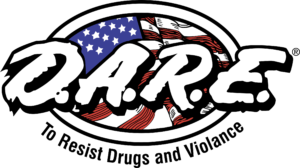People who were young teens in the 1980s or ’90s may remember their experience with the Drug Abuse Resistance Education (DARE) program, which started in 1983 in the spirit of the war on drugs. The program was instituted in most schools nationwide. For around 15 years, DARE remained a prominent program but had peaked public interest by the early 1990s. Despite all its promotion by politicians and school systems, the praise lavished on the program by parents, and funding estimated to be as high as $750 million, DARE did not work. Why?

Universities conducted multiple large research studies of DARE, and two major studies of the program were ordered by the Department of Justice (DOJ) from top research institutes. All concluded that there was no measurable effect of the program on participants in terms of drug abuse or on their related attitudes and behaviors. This failure of the DARE program has ultimately been attributed to these several essential insufficiencies:
Deficient Approach to Influencing Children
One contributor to the failure of DARE appears to have been the charged social energy of the times. During the ’80s, there was a widespread heightened fear response to drug abuse perpetuated by media coverage. Those were the days of “Just Say No” and mass incarceration for drug convictions. Personifying the war approach to the anti-drug-abuse initiative were law enforcement officers introducing DARE at schools.
It has been suggested that the program may have seemed less adversarial and been better served in its educational goals by not presenting police officers as the face of the program. Instead, having specialists in the prevention of substance abuse provide guidance for student bodies, parents, school administrators, and faculties may have been more effective in connecting with children.
The DARE program also emphasized punishments and zero-tolerance, in keeping with the war theme. It’s been argued that education on rehabilitation instead of focus on consequences was another opportunity missed in the initiative.
Ineffective Curriculum
Through more than a decade, DARE representatives conducted programs several months long at each school with weekly 45-minute lectures to children in the 5th and 6th grades. The emphasis was on explaining the risks and consequences of drug abuse, self-esteem and resisting peer pressure, and ways to refuse drugs.
DARE also disseminated literature to parents on how to keep their kids off drugs and even tests for monitoring children’s stress levels. There has been criticism of the DARE teaching material, suggesting it seemed aimed at scaring parents, heightening concerns about drug use, and encouraging parents to become hyper-vigilant.
Politics Over Practicality
For years, the DARE program presented the appearance of great success. The public image of the program was well-supported by TV advertising, billboards, bumper stickers, and significant events. Politicians, legislators, and financial stakeholders in the continuation of DARE dismissed concerns about the program’s efficacy.
But, as mentioned, broad-scale studies by some of the world’s most renowned research groups had revealed that the program did not work. The DARE administrators reportedly actually took legal action in an attempt to conceal research findings from one study ordered by the DOJ, which funded DARE. Further, DARE was inadequately responsive to the findings to adapt its curriculum based on the research data — another error that is said to have likely contributed to the failure of the program.
DARE Today

Today’s DARE program has been transformed into a curriculum of scientific evidence-based methods. The long weekly DARE lecture is a thing of the past. Sessions now feature minimal lecturing. Instead, there is now a strong emphasis on role-playing activities and other interactive opportunities for children to learn by doing. The program has also replaced its former focus on teaching consequences of drug abuse with developmental training in areas such as communications, decision-making, and coping skills.
The modern DARE system is guided by its scientific advisory council, which is packed with drug abuse prevention researchers. Through its reorganization, DARE leadership has developed a more effective methodology for engaging school children.
Once staunch critics of DARE throughout academia now praise the program’s science-based approach of fostering skill-building through exciting peer engagement opportunities for kids.
As a result of the DARE organization itself learning perhaps more that it successfully taught during its early years of operation, much more recent research has shown impressive data indicating that DARE works!
Renaissance Recovery Center, Gilbert Arizona
Renaissance is an outpatient rehab center. We work on the underlying issues that led to drug or alcohol addiction, not just on stopping substance abuse. We help our clients in recovery to overcome feelings of emotional pain, shame, and isolation and build self-empowerment and confidence in moving beyond addiction to a meaningful life. As a result, our program is among the best rehab Arizona has to offer people struggling with alcohol or drug addiction.
The Renaissance Recovery Center in Gilbert specializes in the treatment of addiction and associated mental health issues. Every client has a personalized recovery program of one-on-one therapy and social support. Therapy is affordable, and we can accept most types of health insurance. We can verify your coverage for the program with your insurance company if you wish.
For information about our Arizona drug rehab program, call Renaissance Recovery Center, Gilbert, AZ at (480) 418-9618, or use our online contact form to schedule an appointment for your free assessment.








